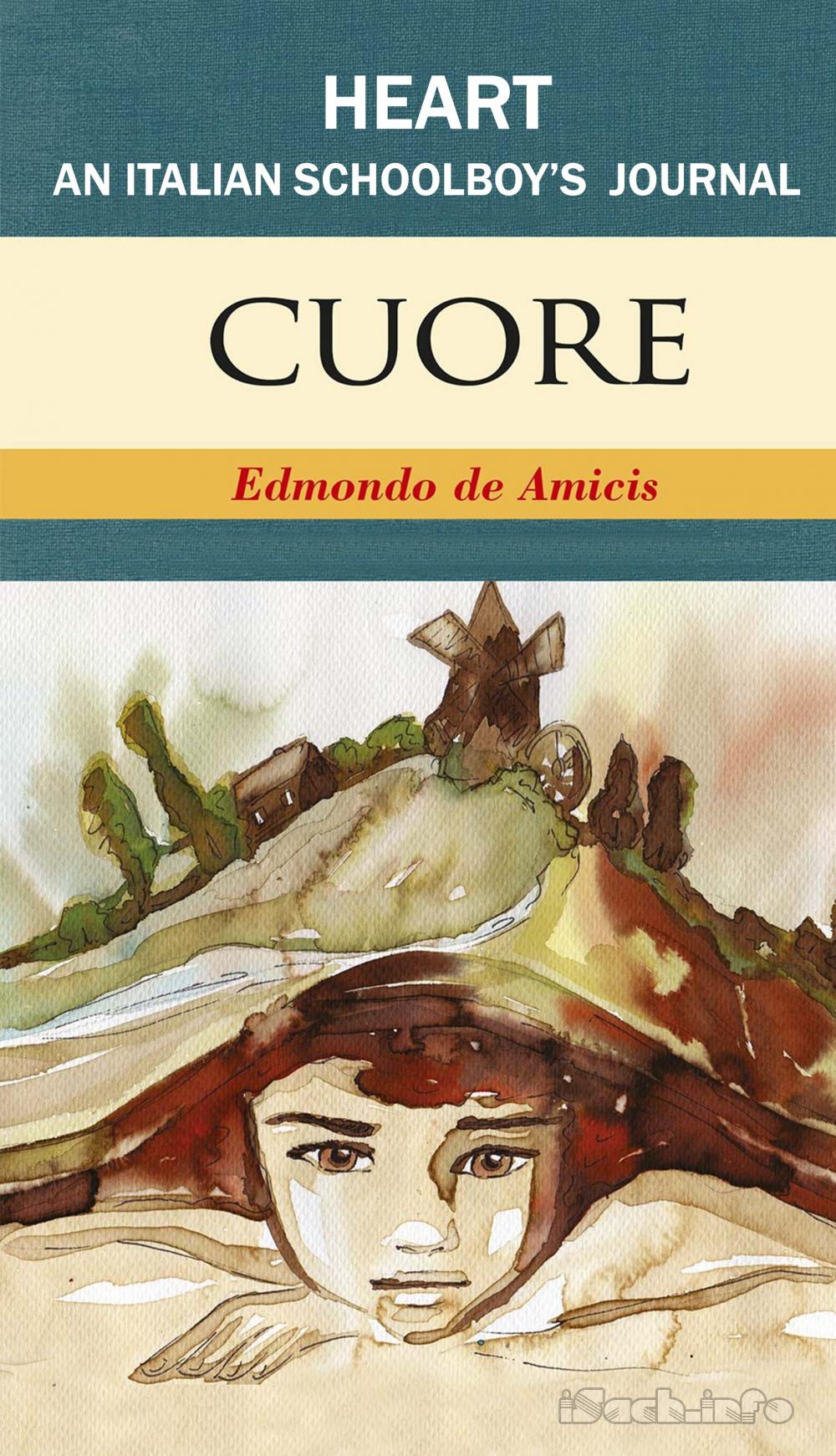Chapter 93: The Distribution Of Prizes To The Workingmen
S
unday, 25th.As we had agreed, we all went together to the Theatre Vittorio Emanuele, to view the distribution of prizes to the workingmen. The theatre was adorned as on the 14th of March, and thronged, but almost wholly with the families of workmen; and the pit was occupied with the male and female pupils of the school of choral singing. These sang a hymn to the soldiers who had died in the Crimea; which was so beautiful that, when it was finished, all rose and clapped and shouted, so that the song had to be repeated from the beginning. And then the prize-winners began immediately to march past the mayor, the prefect, and many others, who presented them with books, savings-bank books, diplomas, and medals. In one corner of the pit I espied the little mason, sitting beside his mother; and in another place there was the head-master; and behind him, the red head of my master of the second grade.
The first to defile were the pupils of the evening drawing classes—the goldsmiths, engravers, lithographers, and also the carpenters and masons; then those of the commercial school; then those of the Musical Lyceum, among them several girls, workingwomen, all dressed in festal attire, who were saluted with great applause, and who laughed. Last came the pupils of the elementary evening schools, and then it began to be a beautiful sight. They were of all ages, of all trades, and dressed in all sorts of ways,—men with gray hair, factory boys, artisans with big black beards. The little ones were at their ease; the men, a little embarrassed. The people clapped the oldest and the youngest, but none of the spectators laughed, as they did at our festival: all faces were attentive and serious.
Many of the prize-winners had wives and children in the pit, and there were little children who, when they saw their father pass across the stage, called him by name at the tops of their voices, and signalled to him with their hands, laughing violently. Peasants passed, and porters; they were from the Buoncompagni School. From the Cittadella School there was a bootblack whom my father knew, and the prefect gave him a diploma. After him I saw approaching a man as big as a giant, whom I fancied that I had seen several times before. It was the father of the little mason, who had won the second prize. I remembered when I had seen him in the garret, at the bedside of his sick son, and I immediately sought out his son in the pit. Poor little mason! he was staring at his father with beaming eyes, and, in order to conceal his emotion, he made his hare’s face. At that moment I heard a burst of applause, and I glanced at the stage: a little chimney-sweep stood there, with a clean face, but in his working-clothes, and the mayor was holding him by the hand and talking to him.
After the chimney-sweep came a cook; then came one of the city sweepers, from the Raineri School, to get a prize. I felt I know not what in my heart,—something like a great affection and a great respect, at the thought of how much those prizes had cost all those workingmen, fathers of families, full of care; how much toil added to their labors, how many hours snatched from their sleep, of which they stand in such great need, and what efforts of intelligences not habituated to study, and of huge hands rendered clumsy with work!
A factory boy passed, and it was evident that his father had lent him his jacket for the occasion, for his sleeves hung down so that he was forced to turn them back on the stage, in order to receive his prize: and many laughed; but the laugh was speedily stifled by the applause. Next came an old man with a bald head and a white beard. Several artillery soldiers passed, from among those who attended evening school in our schoolhouse; then came custom-house guards and policemen, from among those who guard our schools.
At the conclusion, the pupils of the evening schools again sang the hymn to the dead in the Crimea, but this time with so much dash, with a strength of affection which came so directly from the heart, that the audience hardly applauded at all, and all retired in deep emotion, slowly and noiselessly.
In a few moments the whole street was thronged. In front of the entrance to the theatre was the chimney-sweep, with his prize book bound in red, and all around were gentlemen talking to him. Many exchanged salutations from the opposite side of the street,—workmen, boys, policemen, teachers. My master of the second grade came out in the midst of the crowd, between two artillery men. And there were workmen’s wives with babies in their arms, who held in their tiny hands their father’s diploma, and exhibited it to the crowd in their pride.



 ePub
ePub A4
A4